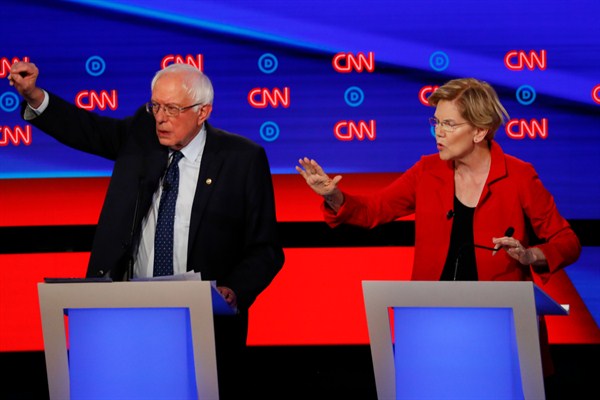The eventual victor in the chaotic and crowded contest for the Democratic presidential nomination remains to be seen. But one thing seems clear: The political energy in this election cycle is on the left. Elizabeth Warren, the senator from Massachusetts and would-be trust buster, has displaced faltering former Vice President Joe Biden as putative frontrunner. If any evidence of her rise were required, her competitors for the nomination provided it when they trained fire on her in the most recent presidential debate.
But meanwhile, Bernie Sanders, Vermont’s independent socialist senator, is still a fundraising juggernaut, hauling in more than $25 million in the third quarter of the year, largely in the form of small donations from loyal grassroots supporters. Bouncing back from his recent heart attack, Sanders scored a coveted endorsement from freshman congresswoman and left-wing populist darling Alexandria Ocasio-Cortez.
Given Warren’s sudden surge and Sanders’ staying power, the ultimate Democratic nominee may be someone genuinely new—not a mainstream figure hewing to orthodox, even hawkish, positions, but a left-wing candidate espousing a progressive vision. With that possibility in mind, how do the foreign policy positions of these two leading populists stack up?

